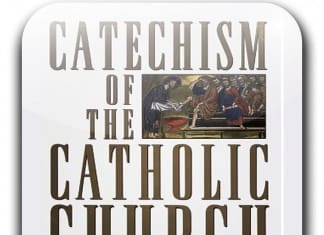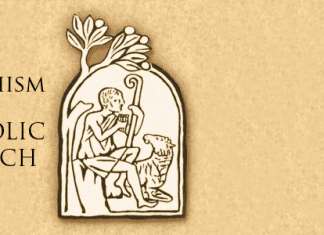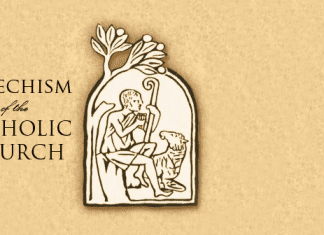Catechism of The Catholic Church #460
460 The Word became flesh to make us "partakers of the divine nature": "For this is why the Word became man, and the Son...
Catechism of The Catholic Church #2267
2267 The traditional teaching of the Church does not exclude, presupposing full ascertainment of the identity and responsibility of the offender, recourse to the death penalty, when this is the only practicable way to defend the lives of human beings effectively against the aggressor.
"If, instead, bloodless means are sufficient to defend against the aggressor and to protect the safety of persons, public authority should limit itself to such means, because they better correspond to the concrete conditions of the common good and are more in conformity to the dignity of the human person.
"Today, in fact, given the means at the State's disposal to effectively repress crime by rendering inoffensive the one who has committed it, without depriving him definitively of the possibility of redeeming himself, cases of absolute necessity for suppression of the offender 'today ... are very rare, if not practically non-existent.'
Catechism of The Catholic Church #1806
1806 Prudence is the virtue that disposes practical reason to discern our true good in every circumstance and to choose the right means of...
Catechism of The Catholic Church #1029
1029 In the glory of heaven the blessed continue joyfully to fulfill God's will in relation to other men and to all creation. Already they reign with Christ; with him "they shall reign for ever and ever."
Catechism of The Catholic Church #452
452 The name Jesus means "God saves". the child born of the Virgin Mary is called Jesus, "for he will save his people from their sins" (⇒ Mt 1:21): "there is no other name under heaven given among men by which we must be saved" (⇒ Acts 4:12).
Catechism of The Catholic Church #2258
2258 "Human life is sacred because from its beginning it involves the creative action of God and it remains for ever in a special...
Catechism of The Catholic Church #1785
1785 In the formation of conscience the Word of God is the light for our path, we must assimilate it in faith and prayer...
Catechism of The Catholic Church #412
412 But why did God not prevent the first man from sinning? St. Leo the Great responds, "Christ's inexpressible grace gave us blessings better...
Catechism of the Catholic Church #1131
1131 The sacraments are efficacious signs of grace, instituted by Christ and entrusted to the Church, by which divine life is dispensed to us. the visible rites by which the sacraments are celebrated signify and make present the graces proper to each sacrament. They bear fruit in those who receive them with the required dispositions.
Catechism of The Catholic Church #156
156 What moves us to believe is not the fact that revealed truths appear as true and intelligible in the light of our natural reason: we believe "because of the authority of God himself who reveals them, who can neither deceive nor be deceived". So "that the submission of our faith might nevertheless be in accordance with reason, God willed that external proofs of his Revelation should be joined to the internal helps of the Holy Spirit." Thus the miracles of Christ and the saints, prophecies, the Church's growth and holiness, and her fruitfulness and stability "are the most certain signs of divine Revelation, adapted to the intelligence of all"; they are "motives of credibility" (motiva credibilitatis), which show that the assent of faith is "by no means a blind impulse of the mind".
















